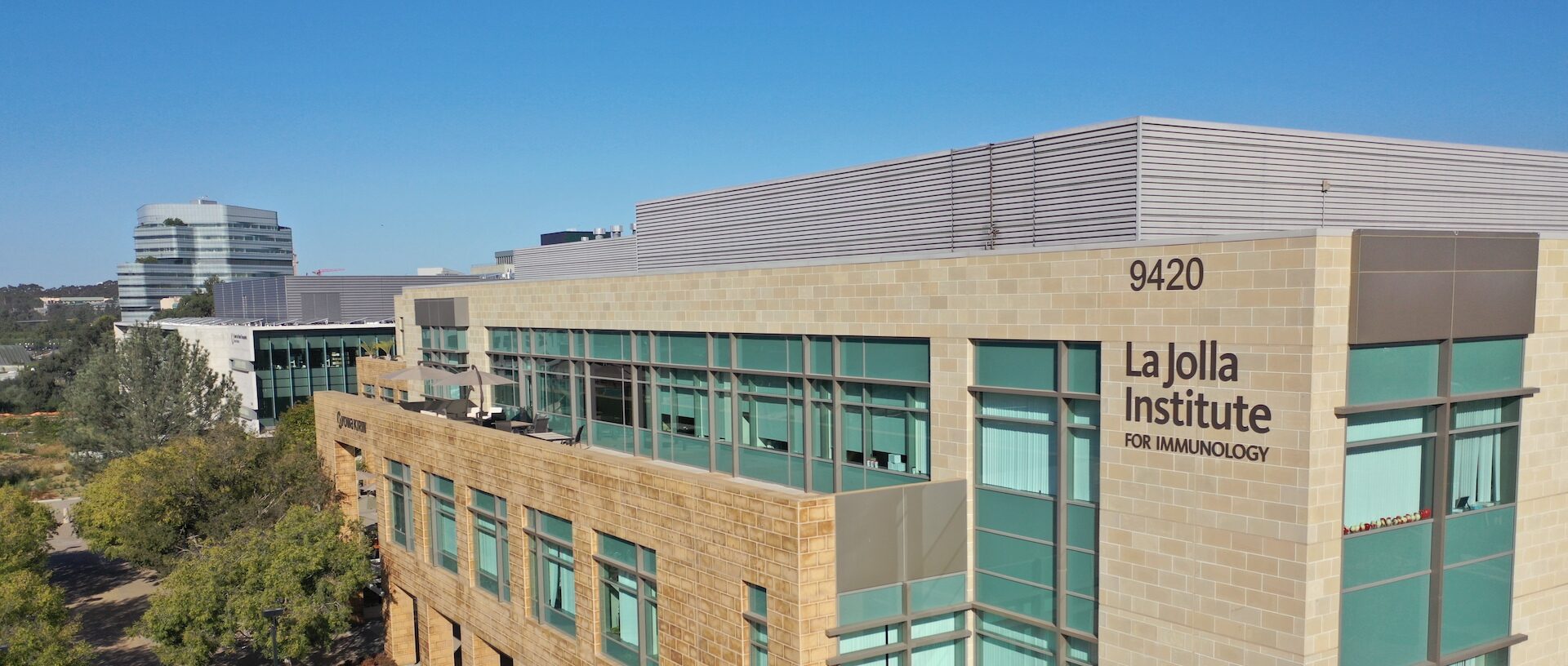LA JOLLA, CA – A global health leader, the head of research and development for an international specialty pharmaceutical company and a leading real estate developer have been elected to the La Jolla Institute for Immunology Board of Directors.
Joining the Institute board are Lynda Stuart, M.D., Ph.D., deputy director at the Bill & Melinda Gates Foundation and an internationally recognized immunology researcher; Mitsuo Satoh, Ph.D., executive officer, vice president head of research and development for the global specialty pharmaceutical company Kyowa Hakko Kirin Co., Ltd.; and Sandor W. Shapery, one of San Diego’s most respected real estate developers and business leaders.
“We are pleased to welcome Dr. Stuart, Dr. Satoh and Sandy Shapery to the Institute Board,” said Mitchell Kronenberg, Ph.D., La Jolla Institute president and chief scientific officer. “They are all recognized as outstanding leaders in their respective fields and their vast experience and interest and commitment to advancing immunology research will make them extremely valuable members of our board.”
Dr. Stuart, who was born in Jamaica and raised in the United Kingdom, received a BA in medicine and her M.D. from the University of Cambridge and the University of London. She subsequently received training as a nephrologist and practiced for 10 years. She acquired a Ph.D. in microbiological sciences and immunology from the University of Edinburgh. In 2003, Dr. Stuart moved to the United States to join the faculty of Harvard Medical School and Massachusetts General Hospital.
In 2016, Dr. Stuart joined the foundation, where she leads the Vaccine and Host Pathogen Biology domain of Discovery and Translational Sciences. The group works across all infectious diseases of interest to the foundation and sponsors novel approaches that accelerate the discovery, development and translation of new passive and active immunization for targeted diseases. Dr. Stuart is also an affiliate professor with the Benaroya Research Institute at Virginia Mason.
“My love of science and commitment to discovery is identical to the passion and dedication the remarkable scientists at La Jolla Institute have for advancing immunology to a point where it very soon will have a profound impact on health around the world,” Dr. Stuart says. “Immunology-based organizations like La Jolla Institute are on the threshold of developing some of the most effective treatments, if not actual cures, in medical history.”
Dr. Satoh is a much-honored scientist and one of the leading pharmaceutical research scientists in the world. His company’s American subsidiary, Kyowa Hakko Kirin California, Inc., and La Jolla Institute have been longtime industry and research partners whose collaboration has led to pharmaceutical translation of many of the Institute’s promising discoveries into new treatments for disease.
“I am very proud of the successful partnership between Kyowa Hakko Kirin and La Jolla Institute and look forward to working with the tremendously gifted and pioneering scientists at the Institute,” said Dr. Satoh. “The engrained culture of innovation creates important opportunities to improve people’s health around the globe. “
Dr. Satoh, who assumed his current position at Kyowa Hakko Kirin in March of 2017, began his scientific career with the Japanese company in 1987. In 1996, he became a visiting scientist at the Texas Medical Center where he studied chromosome engineering and subsequently contributed to the development of Potelligent® Technology after returning to Japan. Dr. Satoh was involved in glyco-engineered biological pipeline developments, including Mogamulizumab, Benralizumab and Acoalan.
Dr. Satoh holds a Master of Pharmacy and Ph.D., from Hokkaido University. Dr. Satoh received the Kei Arima Memorial Award from the Japan Bioindustry Association in 2005 and the 62nd Okochi Memorial Technology Prize from The Okochi Memorial Foundation in 2016.
Shapery is the founder of San Diego-based Shapery Enterprises, a real estate holding company involved in the ownership, design and development of high-rise office buildings, high-rise hotels, commercial centers and raw land. Emerald Plaza, which he developed on West Broadway in the early 1990s, was architecturally innovative with its futuristic, multi-tower hexagonal design.
Born in Chicago, Shapery moved in 1947 with his family to San Diego where his father took over a wholesale food distributorship. He graduated from San Diego State University with a degree in political science and earned his JD cum laude from the University of San Diego School of Law. Shapery worked as a law clerk with famed attorney Melvin Belli and later argued a case before the U.S. Supreme Court.
On the technology side, Shapery designed a vertical takeoff aircraft engine system that he developed with the help of a NASA grant. More recently, through his Transportation Systems Corporation, Shapery is developing advanced transportation infrastructure technology, including zero emissions induction-powered rail and magnetic levitation trains capable of traveling 300 miles an hour on existing railroad platforms. One of his patents has been licensed to the Elon Musk-designed Hyperloop transportation project.
“I’m thrilled to become involved with the Institute because I believe immunology is now at the absolute forefront of humankind’s ability to treat and prevent disease,” said Shapery. “The incredibly talented scientists at the Institute are world leaders in understanding how to leverage the power of our immune system, and not just to develop more effective treatments but to actually cure disease. For those like my wife and so many others who faced cancer and other serious diseases, the Institute offers true hope for saving millions of lives in the years to come. I believe one should counter challenges in health with a positive contribution to put an end to the challenge.”
About La Jolla Institute for Immunology
The La Jolla Institute for Immunology is dedicated to understanding the intricacies and power of the immune system so that we may apply that knowledge to promote human health and prevent a wide range of diseases. Since its founding in 1988 as an independent, nonprofit research organization, the Institute has made numerous advances leading toward its goal: life without disease.


